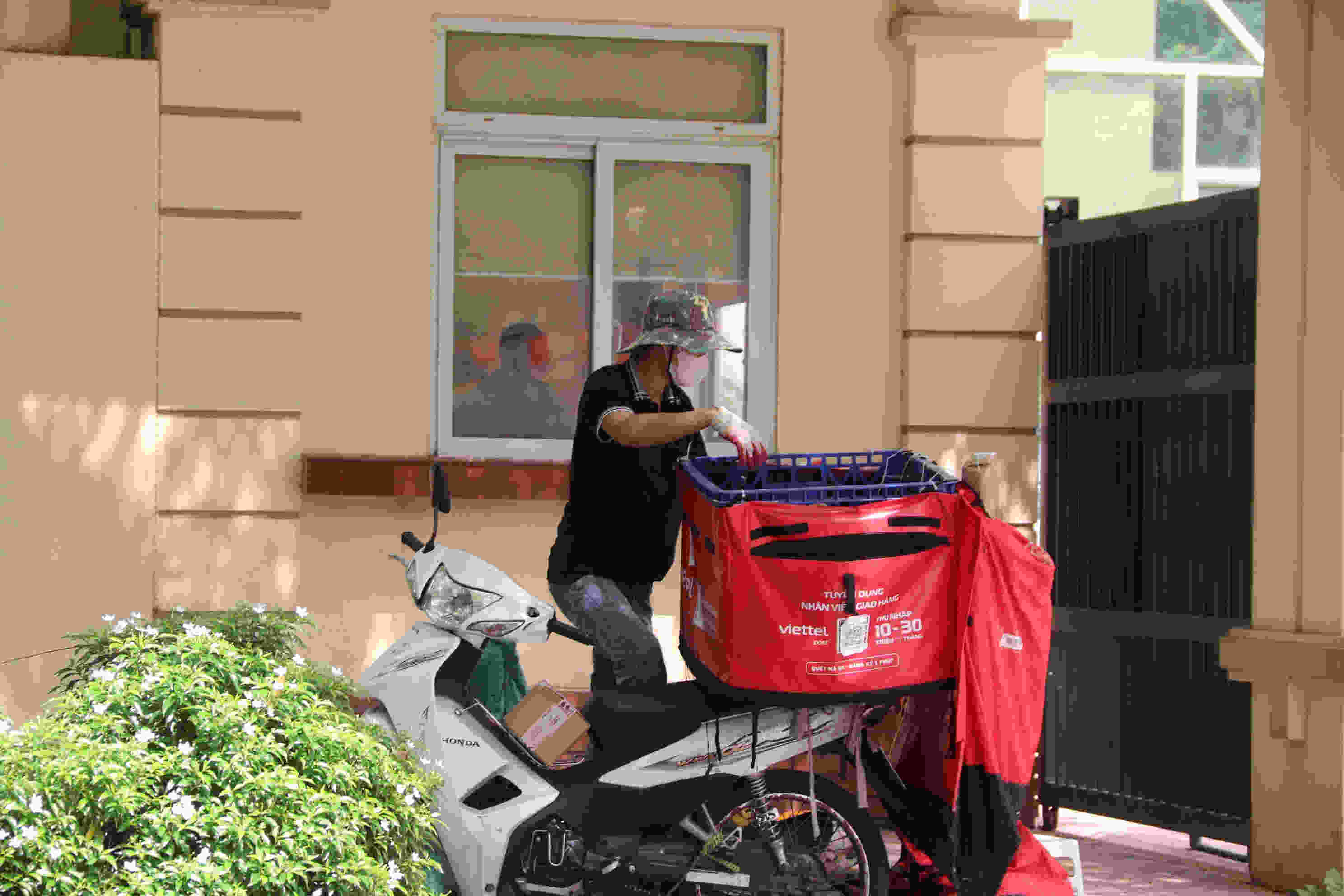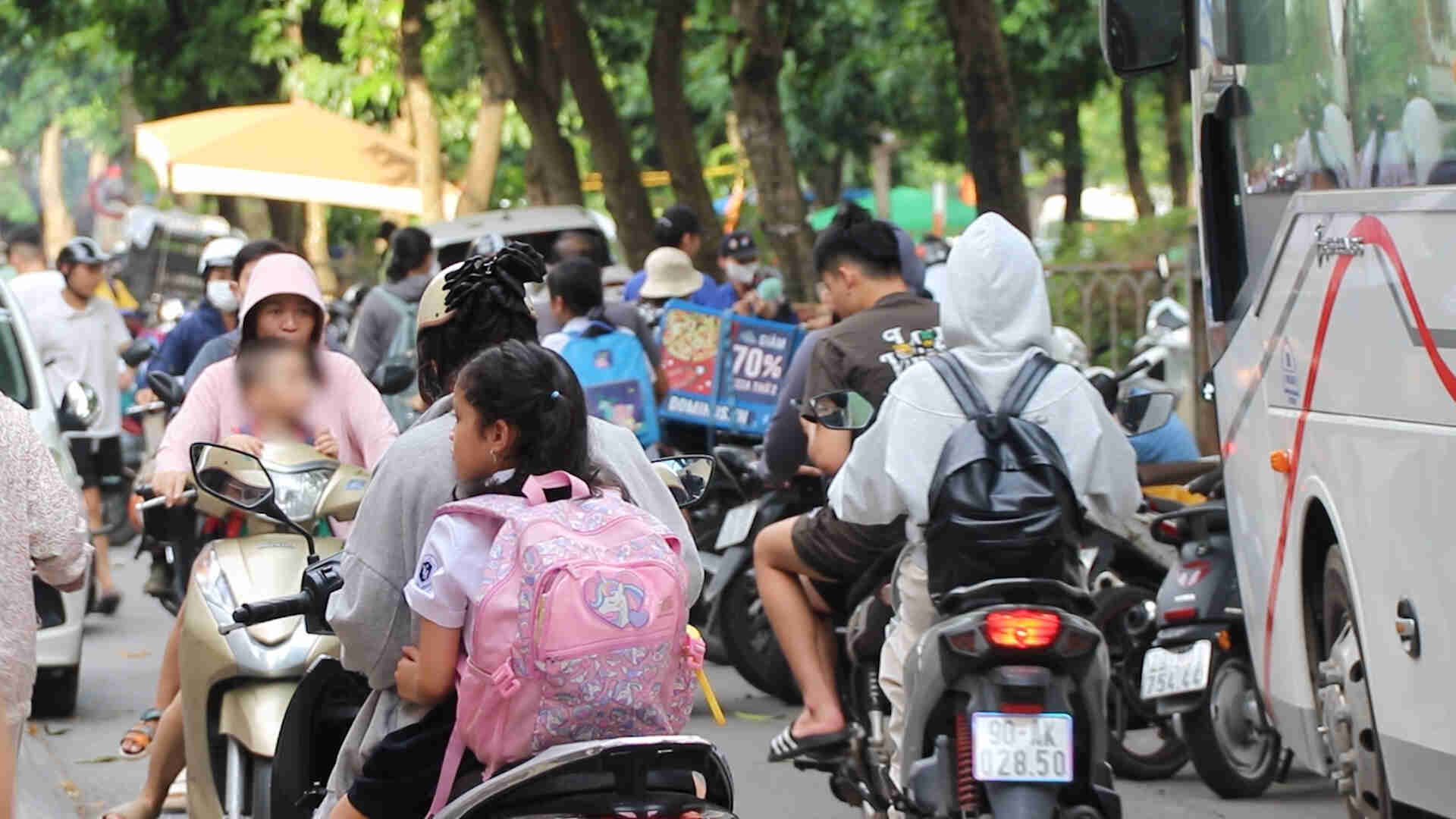In the 2025-2026 school year, the Ministry of Education and Training has begun implementing two sessions/day according to new instructions. Specifically, primary school must not exceed 7 periods/day, with a minimum of 9 sessions/week, each period of 35 minutes. Secondary and high school students also study no more than 7 periods/day, up to 11 sessions/week, each 45-minute period to avoid concentrating the time in one session. However, this regulation causes students in many schools to drop out of school early, from around 15:20 to 15:30, disrupting family activities due to parents' inconsistent working hours.
Mr. Tran Gia Lai, from My Duc (Hanoi), is currently renting a room in Tu Liem ward to work as a shipper. His shift starts at 8am and ends at 5:30pm. Both of his children are in elementary school, so he and his wife are very worried when they leave school at 3:30 p.m., while they are still working.

"I am a freelancer, my wife is a worker, we work more than 50 km from our hometown, so we have to rent a room here. Previously, the children finished school at 4:30 p.m., so the family registered for an extra 1-hour class to catch up. But if from now on the children return at 3:30 p.m., it will be really difficult, because my wife and I do not have grandparents or relatives nearby to ask for help," Mr. Lai shared.
In the same situation, Ms. Nguyen Thi Lan Anh, a worker in Hanoi, also hopes that the school can organize childcare until about 5:00 p.m. as usual to make parents feel more secure.
"If we had welcomed them since 3pm, it would be too difficult for workers like us. Every afternoon, my family races against time. I have two children, one in junior high school and one in primary school. The company is about 10 km from the school, and the road is often congested during rush hour, so if the children leave early, it will be very difficult to handle. If I had to spend money to hire someone to pick them up, it would be really hard, said Ms. Lan Anh.

In reality, the policy of innovating learning time to reduce pressure on students is necessary. However, to better suit the working conditions of parents, many opinions say that schools need to consider flexible options, organize extracurricular activities or after-school childcare services. This not only helps parents feel secure in their work but also creates a stable and safe learning and living environment for students.









